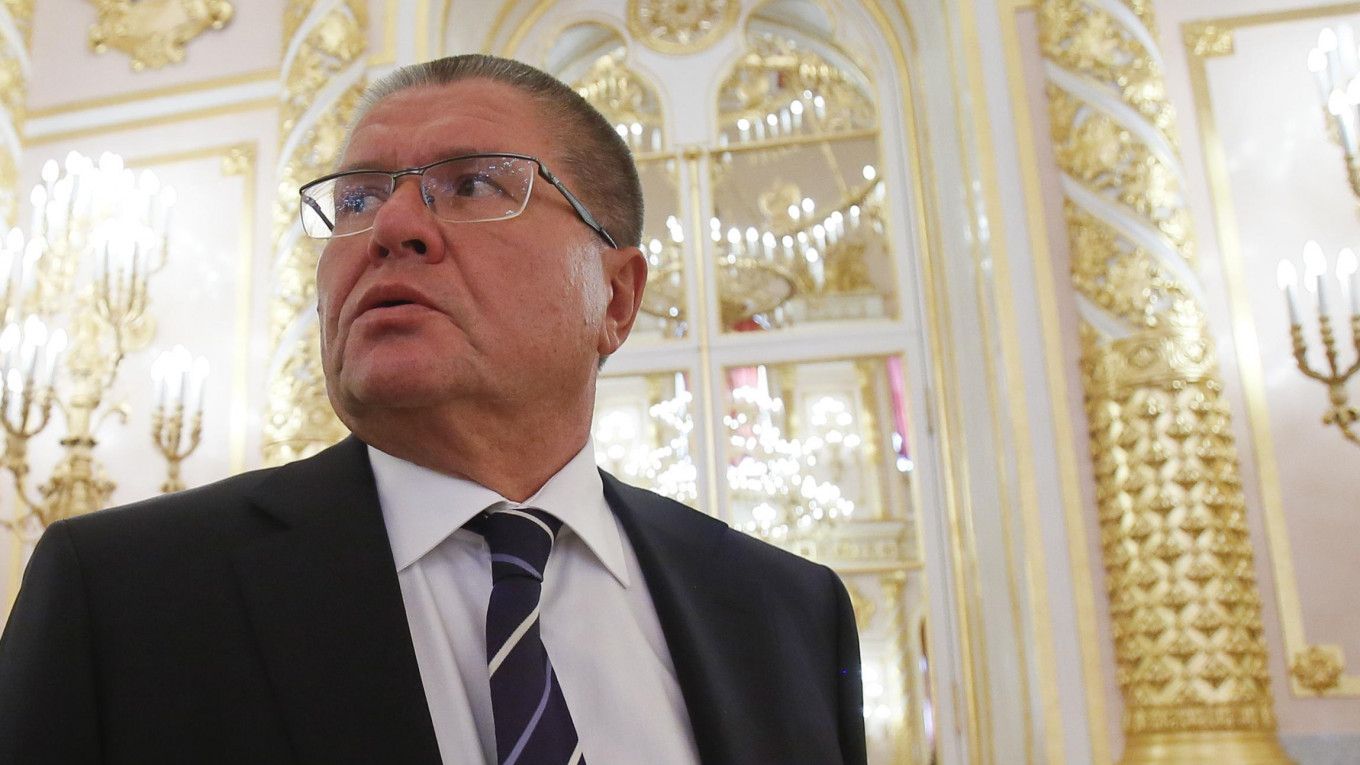Russian Economic Development Minister Alexei Ulyukayev has appeared in Moscow's Baumansky court to face corruption allegations.
Ulyukayev was charged with accepting a $2-million bribe on Tuesday, having been arrested by agents from Russia's Federal Security Service (FSB) late on Monday night.
The minister did not personally receive the money, which was left in a safety deposit box and withdrawn by someone else, the Novaya Gazeta newspaper reported.
According to a statement published by the Investigative Committee, the bribe was paid in connection with Ulyukayev’s ministry giving a “positive assessment” to a bid by oil giant Rosneft to purchase government-held stakes in its former rival Bashneft.
Ulyukayev is accused of exacting the bribe by making threats against Rosneft representatives, the Interfax news agency cited Investigative Committee spokesperson Svetlana Petrenko as saying.
She said that the FSB had been tapping Ulyukayev’s phone since early summer
this year.
An unnamed source in law enforcement told the
state-run RIA Novosti news agency that Ulyukayev had been under scrutiny for more than a year.
He is the highest-ranking minister to be arrested while in office since the collapse of the Soviet Union.
“It's the first time I've seen Baumansky court like this,” said the Dozhd television channel's Maria Borzunova on Twitter. Ulyukayev has already arrived, and will soon be heading into the courtroom.
"Ulyukaev was being observed by FSB officers for more than a year, but we don't know whether the initial suspicions were related to the current accusations against him," the source was cited as saying.
Kremlin spokesman Dmitry Peskov called the charges "very serious, requiring very serious evidence," a separate Interfax report said. "In any case, only the court can decide," he said, adding President Vladimir Putin had been informed of the news overnight.
The sale of the Russian government's 50-percent stake in Bashneft to Rosneft in October followed a long internal struggle over whether allowing the state-controlled Rosneft to purchase the stakes contradicted the initial goal of privatization.
The deal itself is not under investigation and is considered legitimate, Interfax said, citing investigators.
Russia's politicians and analysts react to the arrest of Alexei Ulyukaev: "What the hell is going on?"
Ulyukayev's arrest may be connected to the "opaque scheme" through which the Bashneft oil company was privatized, according to Anton Pominov, director of anti-corruption NGO Transparency International's Russian branch.
"Not long ago, Vladimir Putin stated that he was surprised by the government's position on privatizing Bashneft. And perhaps the security services understood his surprise as a signal for action," he told The Insider news site.
There was a legitimate reason for surprise, Pominov said: Bashneft's privatization was far from transparent. Rather than putting the company's shares up for auction, Bashneft was privatized through a "confusing system" involving the VTB Capital investment company.
"What's more, only Rosneft received a proposal [to take part in the privatization] from VTB Capital, even though, from the very beginning, there were many interested companies," he said.
Pominov suggested that the arrest could not have taken place without Putin's support. He also noted that the Pamana Papers, published earlier this year, listed Ulyukayev's 21-year-old son as the owner of an offshore entity in the British Virgin Islands.
"Coincidence? It can't be," said Pominov. "But the Bashneft story is still more important."
See more on the privatization of Bashneft here: A Very Public Privatization
A Message from The Moscow Times:
Dear readers,
We are facing unprecedented challenges. Russia's Prosecutor General's Office has designated The Moscow Times as an "undesirable" organization, criminalizing our work and putting our staff at risk of prosecution. This follows our earlier unjust labeling as a "foreign agent."
These actions are direct attempts to silence independent journalism in Russia. The authorities claim our work "discredits the decisions of the Russian leadership." We see things differently: we strive to provide accurate, unbiased reporting on Russia.
We, the journalists of The Moscow Times, refuse to be silenced. But to continue our work, we need your help.
Your support, no matter how small, makes a world of difference. If you can, please support us monthly starting from just $2. It's quick to set up, and every contribution makes a significant impact.
By supporting The Moscow Times, you're defending open, independent journalism in the face of repression. Thank you for standing with us.
Remind me later.






